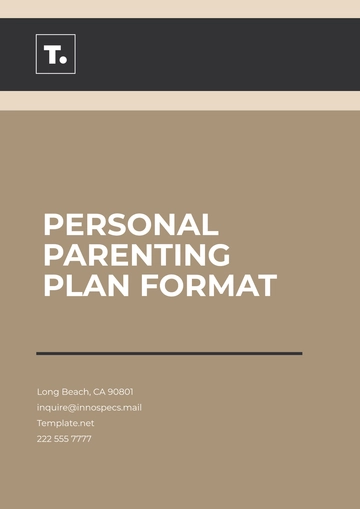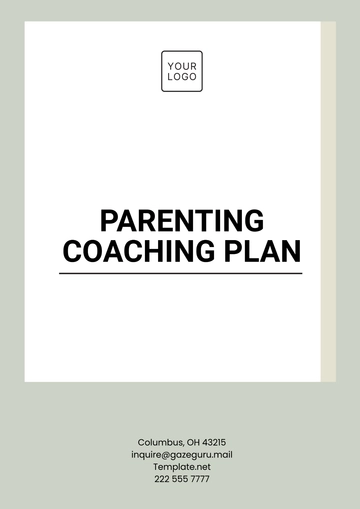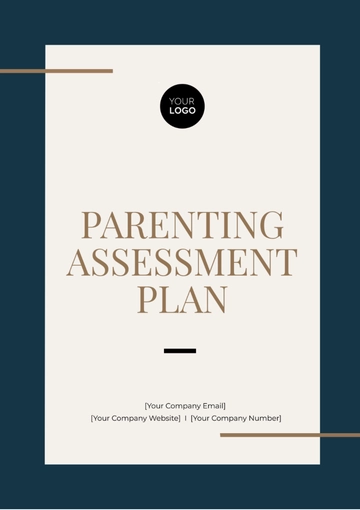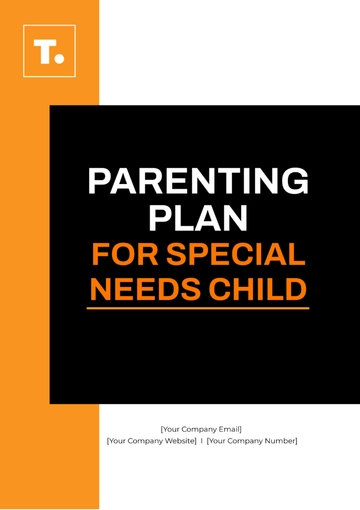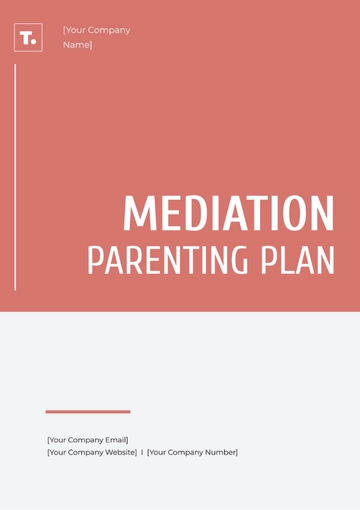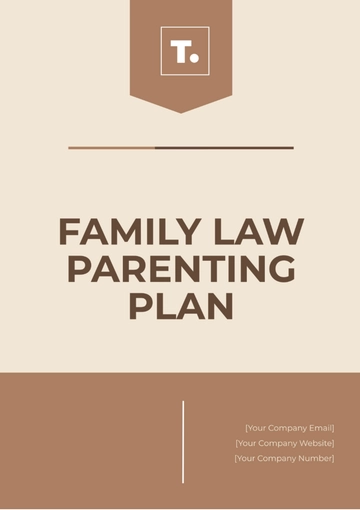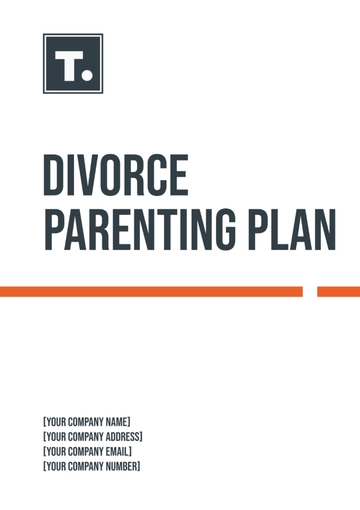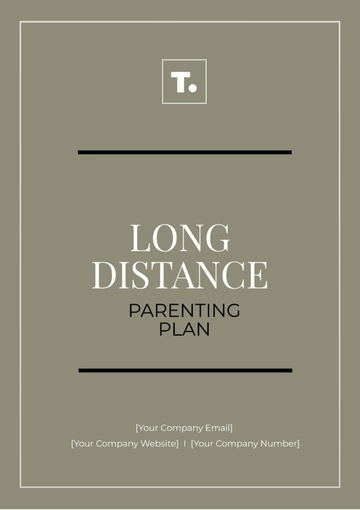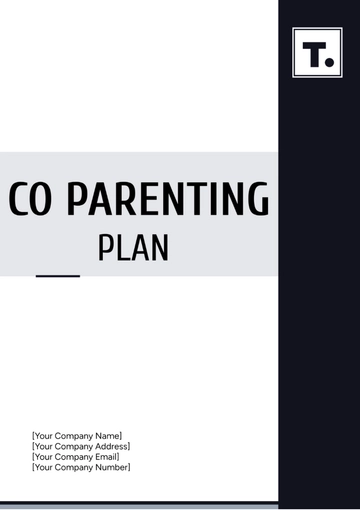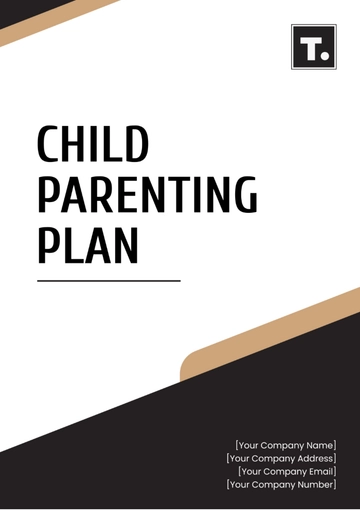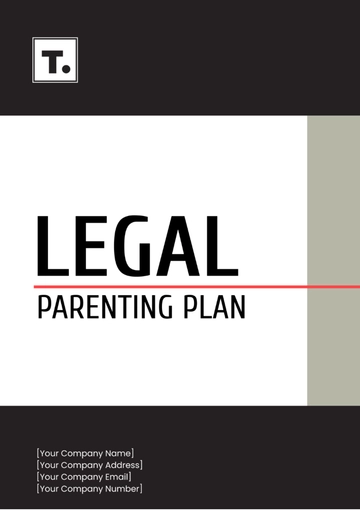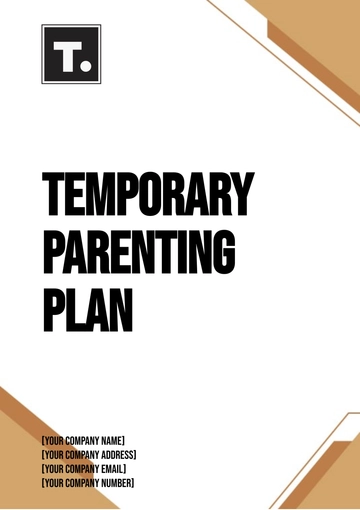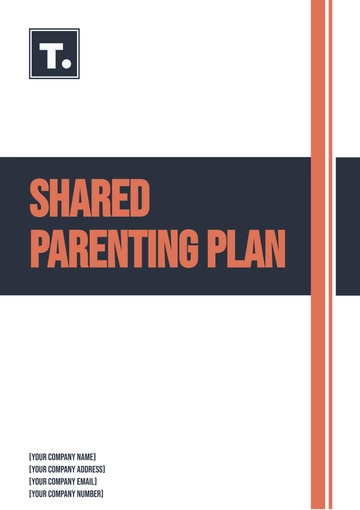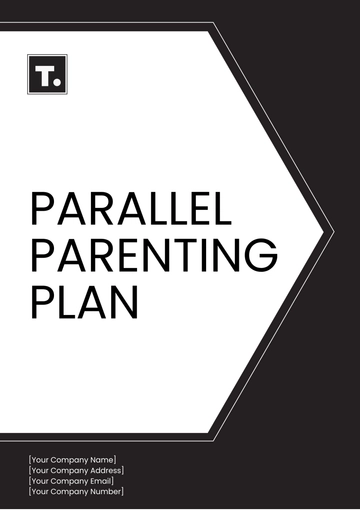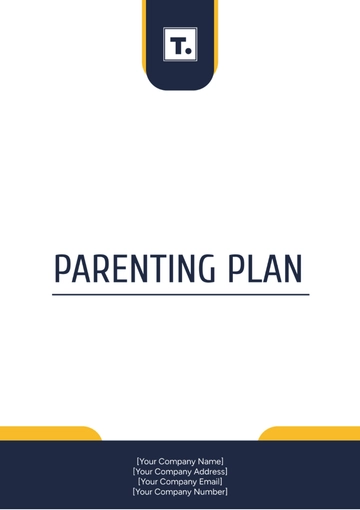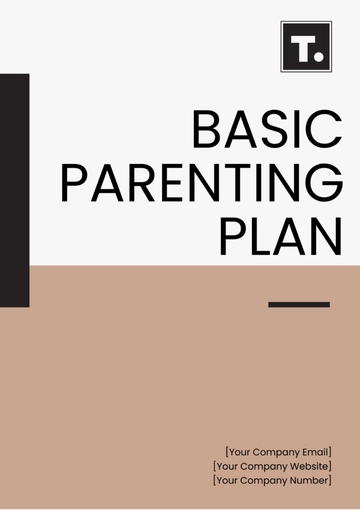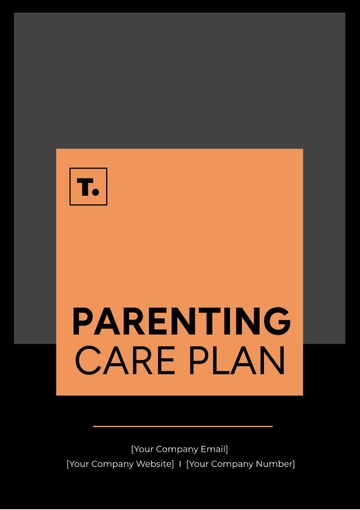Free Parenting Coaching Plan
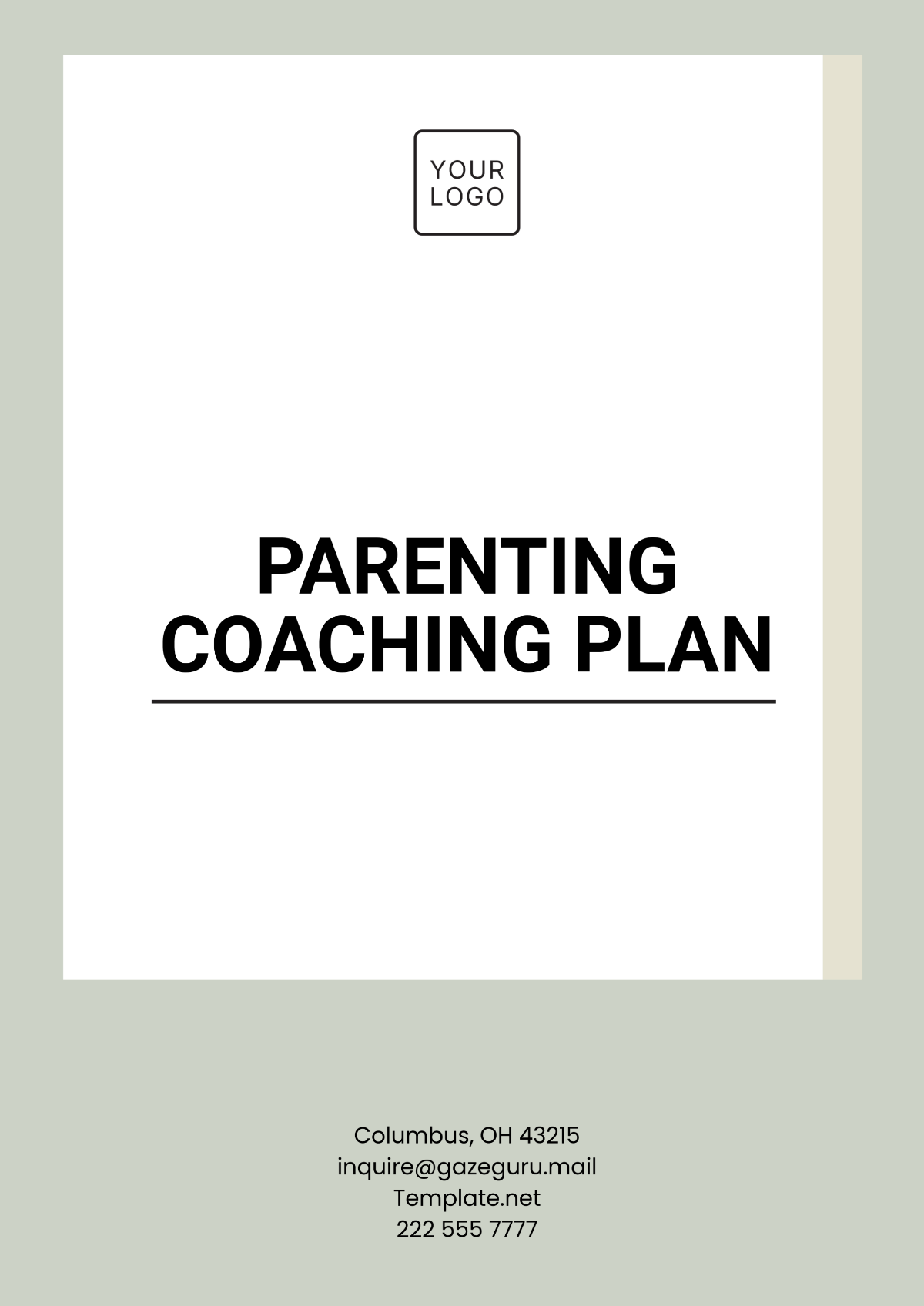
Prepared by: [Your Name]
Date: [Date]
I. Introduction/Overview
This Parenting Coaching Plan is designed to support the Smith Family in addressing key challenges related to improving communication and managing behavioral issues with their 8-year-old child, Emma. The goal of this plan is to strengthen the parent-child relationship, foster positive behavior, and provide parents with practical strategies to manage daily family dynamics effectively.
II. Assessment
An in-depth evaluation of the current family situation will be conducted to identify specific areas of improvement. The assessment includes the following components:
Family Dynamics: The Smith family consists of two parents, Sarah and John, and their daughter, Emma. There is a noticeable lack of open communication, especially during stressful situations, leading to frequent conflicts.
Parenting Challenges: Sarah and John are struggling to address Emma's defiant behavior, particularly around bedtime and schoolwork.
Child’s Development: Emma is a bright and curious child but has shown difficulty in managing her emotions, especially frustration and anger.
Parenting Style: Sarah tends to be more lenient and avoid conflict, while John is more strict and disciplined, leading to inconsistent approaches in managing Emma's behavior.
III. Goals and Objectives
The plan will focus on clear, measurable objectives to achieve the desired outcomes:
Enhancing Communication: Improve open and honest communication between Sarah, John, and Emma to reduce misunderstandings and emotional outbursts.
Behavioral Improvement: Develop strategies for addressing Emma's defiant behavior, especially around bedtime and homework time.
Emotional Regulation: Help Emma and her parents develop tools to manage frustration, anxiety, and anger effectively.
Strengthening the Parent-Child Bond: Foster a deeper, more trusting relationship between Sarah, John, and Emma by encouraging quality time and positive reinforcement.
IV. Action Steps
To achieve the set goals, the following strategies will be implemented:
Parenting Techniques: Sarah and John will be taught techniques such as active listening, positive reinforcement, and consistent discipline. For instance, using a reward system for Emma's good behavior and setting clear, reasonable expectations.
Routine and Structure: Establishing a consistent bedtime and homework routine for Emma. For example, setting a specific time for homework and a calming bedtime ritual.
Emotional Support: Sarah and John will practice validating Emma's feelings and helping her label and manage her emotions. This could include using calming techniques such as deep breathing or journaling.
Family Activities: Engaging in shared family activities, such as weekly movie nights or cooking together, to improve bonding and communication.
V. Timeline
This plan will be implemented over six months. Key milestones include:
Month 1: Assessment phase and setting up basic strategies, including routine and communication techniques.
Month 2-3: Introduction of new techniques, such as emotional regulation tools for Emma, and evaluation of progress in communication.
Month 4-6: Fine-tuning strategies, focusing on reinforcing positive behavior and ensuring consistent communication between Sarah, John, and Emma.
Ongoing: Regular check-ins every month to monitor long-term success and adjust strategies as needed.
VI. Evaluation
To assess progress and determine whether the goals are being met, the following evaluation methods will be used:
Behavior Tracking: Parents will keep a daily log of Emma’s behavior, noting improvements or setbacks in areas like bedtime and homework compliance.
Parent Feedback: Sarah and John will provide feedback every two weeks during check-ins about their experience with the strategies.
Child Feedback: Emma will participate in monthly check-ins to share her thoughts on how she feels about the changes in her family dynamics and whether she feels supported.
Review Sessions: Scheduled sessions every three months with the parenting coach to review progress, adjust goals, and address new challenges.
VII. Support and Resources
Additional resources will be provided to assist the family in their journey:
Workshops: Access to online parenting workshops on topics like conflict resolution, building emotional intelligence, and handling defiant behavior in children.
Reading Materials: Books such as "How to Talk So Kids Will Listen & Listen So Kids Will Talk" and "The Whole-Brain Child" for strategies on improving communication and emotional regulation.
Ongoing Coaching: Continued sessions with a parenting coach for personalized guidance and support, available bi-monthly for the first three months and as needed afterward.
- 100% Customizable, free editor
- Access 1 Million+ Templates, photo’s & graphics
- Download or share as a template
- Click and replace photos, graphics, text, backgrounds
- Resize, crop, AI write & more
- Access advanced editor
Support parents with the Parenting Coaching Plan Template from Template.net. This editable and customizable template helps coaches create personalized strategies for positive parenting, addressing everything from communication to behavior management. Use the Ai Editor Tool to modify the template based on the unique challenges each family faces. Whether for first-time parents or those facing specific issues, this template offers a structured way to support family growth.
You may also like
- Finance Plan
- Construction Plan
- Sales Plan
- Development Plan
- Career Plan
- Budget Plan
- HR Plan
- Education Plan
- Transition Plan
- Work Plan
- Training Plan
- Communication Plan
- Operation Plan
- Health And Safety Plan
- Strategy Plan
- Professional Development Plan
- Advertising Plan
- Risk Management Plan
- Restaurant Plan
- School Plan
- Nursing Home Patient Care Plan
- Nursing Care Plan
- Plan Event
- Startup Plan
- Social Media Plan
- Staffing Plan
- Annual Plan
- Content Plan
- Payment Plan
- Implementation Plan
- Hotel Plan
- Workout Plan
- Accounting Plan
- Campaign Plan
- Essay Plan
- 30 60 90 Day Plan
- Research Plan
- Recruitment Plan
- 90 Day Plan
- Quarterly Plan
- Emergency Plan
- 5 Year Plan
- Gym Plan
- Personal Plan
- IT and Software Plan
- Treatment Plan
- Real Estate Plan
- Law Firm Plan
- Healthcare Plan
- Improvement Plan
- Media Plan
- 5 Year Business Plan
- Learning Plan
- Marketing Campaign Plan
- Travel Agency Plan
- Cleaning Services Plan
- Interior Design Plan
- Performance Plan
- PR Plan
- Birth Plan
- Life Plan
- SEO Plan
- Disaster Recovery Plan
- Continuity Plan
- Launch Plan
- Legal Plan
- Behavior Plan
- Performance Improvement Plan
- Salon Plan
- Security Plan
- Security Management Plan
- Employee Development Plan
- Quality Plan
- Service Improvement Plan
- Growth Plan
- Incident Response Plan
- Basketball Plan
- Emergency Action Plan
- Product Launch Plan
- Spa Plan
- Employee Training Plan
- Data Analysis Plan
- Employee Action Plan
- Territory Plan
- Audit Plan
- Classroom Plan
- Activity Plan
- Parenting Plan
- Care Plan
- Project Execution Plan
- Exercise Plan
- Internship Plan
- Software Development Plan
- Continuous Improvement Plan
- Leave Plan
- 90 Day Sales Plan
- Advertising Agency Plan
- Employee Transition Plan
- Smart Action Plan
- Workplace Safety Plan
- Behavior Change Plan
- Contingency Plan
- Continuity of Operations Plan
- Health Plan
- Quality Control Plan
- Self Plan
- Sports Development Plan
- Change Management Plan
- Ecommerce Plan
- Personal Financial Plan
- Process Improvement Plan
- 30-60-90 Day Sales Plan
- Crisis Management Plan
- Engagement Plan
- Execution Plan
- Pandemic Plan
- Quality Assurance Plan
- Service Continuity Plan
- Agile Project Plan
- Fundraising Plan
- Job Transition Plan
- Asset Maintenance Plan
- Maintenance Plan
- Software Test Plan
- Staff Training and Development Plan
- 3 Year Plan
- Brand Activation Plan
- Release Plan
- Resource Plan
- Risk Mitigation Plan
- Teacher Plan
- 30 60 90 Day Plan for New Manager
- Food Safety Plan
- Food Truck Plan
- Hiring Plan
- Quality Management Plan
- Wellness Plan
- Behavior Intervention Plan
- Bonus Plan
- Investment Plan
- Maternity Leave Plan
- Pandemic Response Plan
- Succession Planning
- Coaching Plan
- Configuration Management Plan
- Remote Work Plan
- Self Care Plan
- Teaching Plan
- 100-Day Plan
- HACCP Plan
- Student Plan
- Sustainability Plan
- 30 60 90 Day Plan for Interview
- Access Plan
- Site Specific Safety Plan
